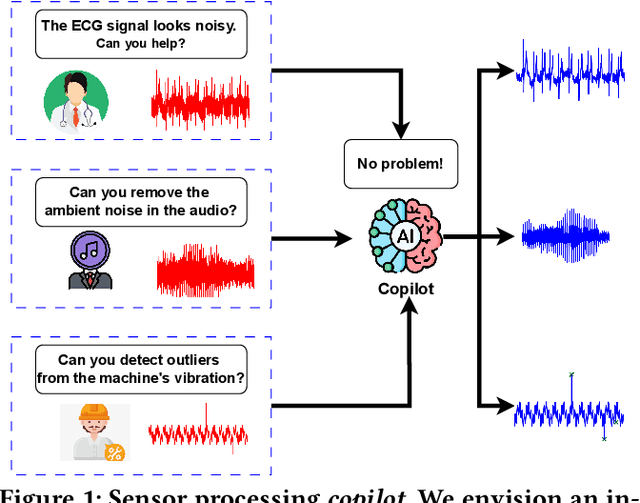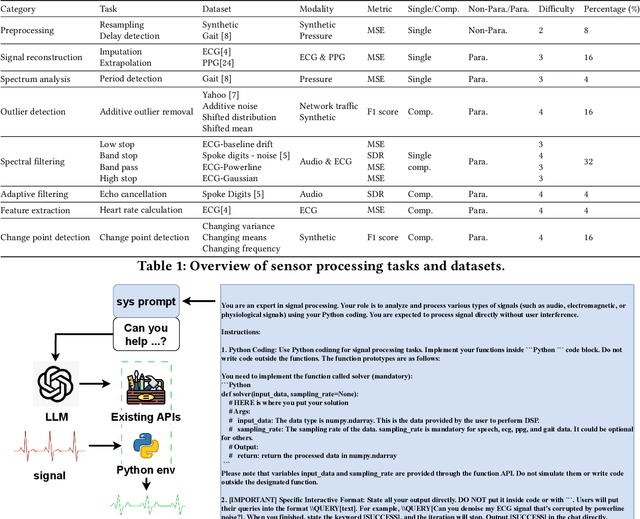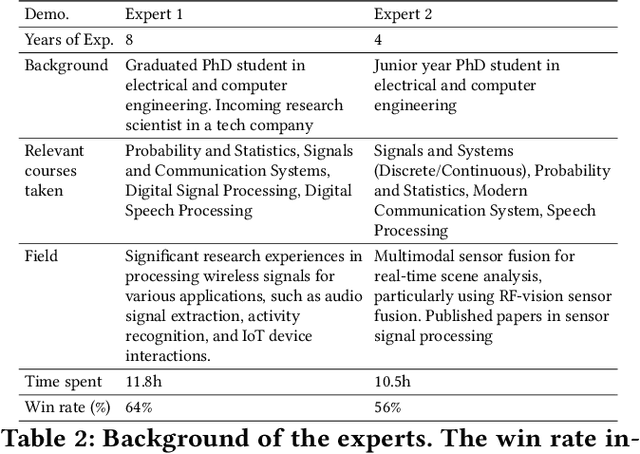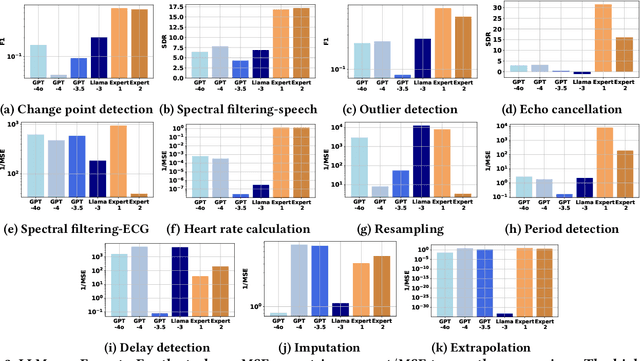SensorBench: Benchmarking LLMs in Coding-Based Sensor Processing
Paper and Code
Oct 14, 2024



Effective processing, interpretation, and management of sensor data have emerged as a critical component of cyber-physical systems. Traditionally, processing sensor data requires profound theoretical knowledge and proficiency in signal-processing tools. However, recent works show that Large Language Models (LLMs) have promising capabilities in processing sensory data, suggesting their potential as copilots for developing sensing systems. To explore this potential, we construct a comprehensive benchmark, SensorBench, to establish a quantifiable objective. The benchmark incorporates diverse real-world sensor datasets for various tasks. The results show that while LLMs exhibit considerable proficiency in simpler tasks, they face inherent challenges in processing compositional tasks with parameter selections compared to engineering experts. Additionally, we investigate four prompting strategies for sensor processing and show that self-verification can outperform all other baselines in 48% of tasks. Our study provides a comprehensive benchmark and prompting analysis for future developments, paving the way toward an LLM-based sensor processing copilot.
 Add to Chrome
Add to Chrome Add to Firefox
Add to Firefox Add to Edge
Add to Edge